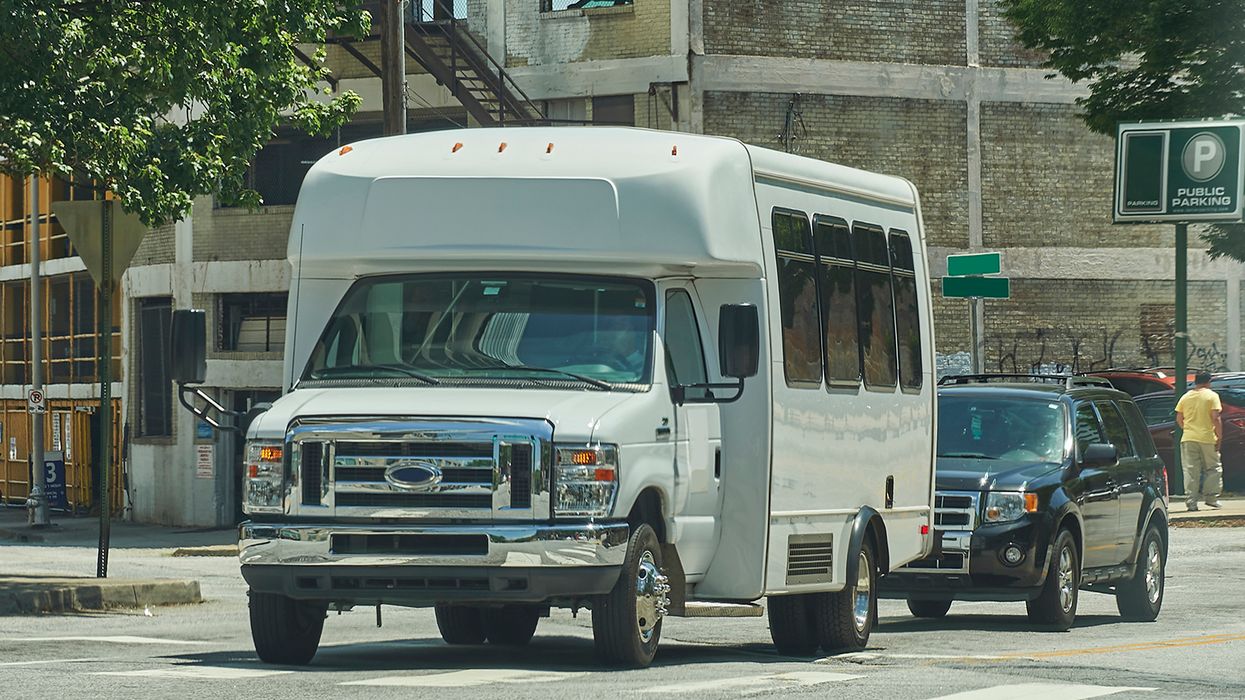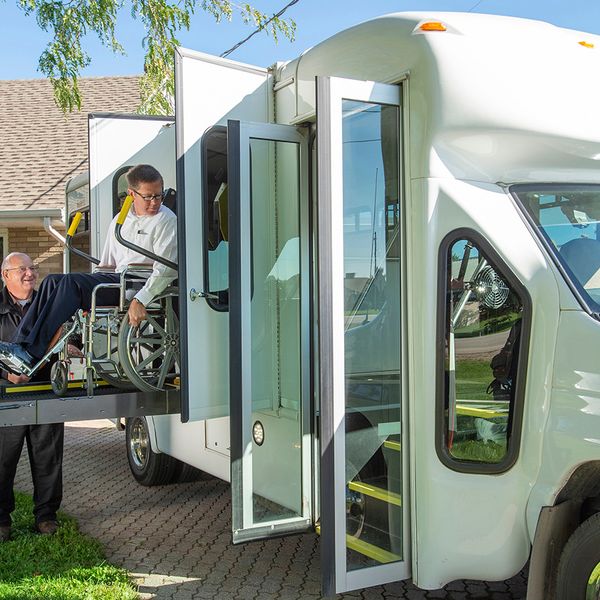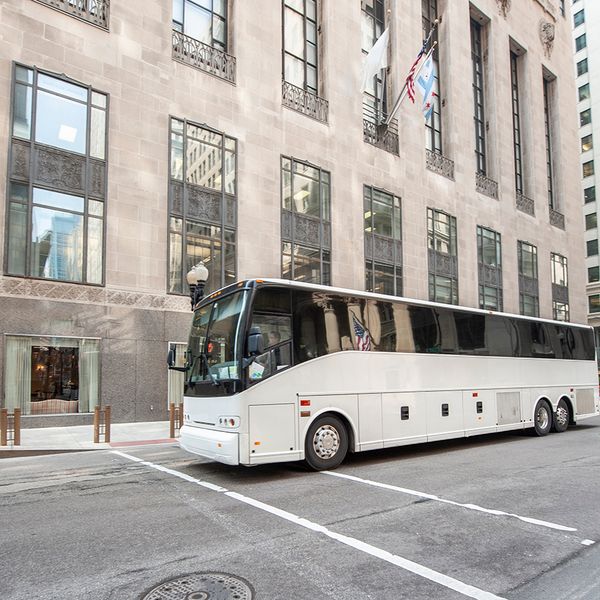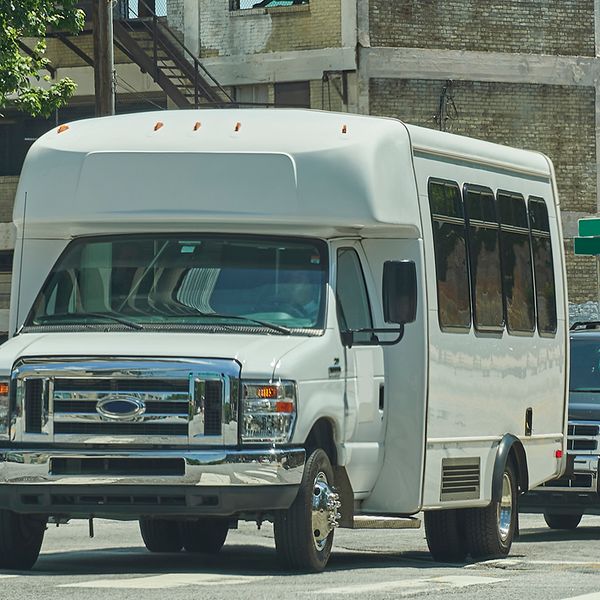Which FMCSRs apply to smaller passenger-carrying vehicle operations?
Passenger-carrying vehicles come in all shapes and sizes. These vehicles range from limousines to employee shuttles, hotel and assisted living facility vans, church buses, and motorcoaches.
How can you be sure which Federal Motor Carrier Safety Regulations (FMCSRs) apply to your operation? A correct answer can:
- Avoid violations and costly fines;
- Decrease carrier Compliance, Safety, and Accountability (CSA) Behavioral Analysis and Safety Improvement Category (BASIC) scores;
- Reduce roadside inspections and the chance of a compliance review; and
- Minimize the cost of insurance.
Assuming the regulations do not apply can have the opposite effect – increased violations, cost, and potential risk. Thus, it pays to know which regulations apply to your operation.
Remember that in-state-only requirements depend on the state(s) in which your vehicles operate. The focus of this article is the applicability of federal safety regulations.
To determine which federal regulations apply, start by answering these five questions:
- Is the operation interstate or intrastate?
- How many passengers are each vehicle designed to carry?
- What is the gross vehicle weight rating or the actual weight of each vehicle?
- Is your transportation service a for-hire or a private operation?
- What type of compensation do you receive, if any?
1. Is the operation interstate or intrastate?
Carriers must be sure whether interstate or intrastate regulations apply. From section 390.5:
“Interstate commerce means trade, traffic, or transportation in the United States—
(1) Between a place in a State and a place outside of such state (including a place outside of the United States);
(2) Between two places in a State through another State or a place outside of the United States; or
(3) Between two places in a State as part of trade, traffic, or transportation originating or terminating outside the State or the United States.”
“Intrastate commerce means any trade, traffic, or transportation in any State which is not described in the term “interstate commerce.”
Travel entirely inside state borders and immediately before and after arriving at an airport could be deemed interstate commerce if:
- An advance guarantee or obligation between the passenger and carrier secures the travel, or
- The passenger intends to utilize a shuttle when a facility, such as a parking garage, hotel, or car rental agency, is not within walking distance of an airport.
2. How many passengers are each vehicle designed to carry?
The manufacturer’s designed passenger capacity or actual passengers, including the driver, is the basis of passenger counts for regulatory purposes. Removing seats from a vehicle does not generally affect the applicable regulations unless all seats are removed and only property will be hauled.
3. What is the gross vehicle weight rating or the actual weight of each vehicle? Regulations apply to passenger-carrying vehicles based on the vehicle’s gross vehicle weight rating (GVWR), usually found on the manufacturer’s plate inside the driver’s door, or the vehicle’s actual weight when fully loaded with passengers, fuel, and luggage.
4. Is the operation a for-hire or private operation?
For-hire motor carriers of passengers provide transportation of passengers in exchange for compensation. Examples of for-hire passenger transportation include limousine, charter bus, canoe rental, and hotel bus services. An organization’s non-profit status is irrelevant in determining the for-hire or private designation.
According to the FMCSA, three factors need to be present to be a for-hire carrier:
- The motor carrier provides interstate transportation of passengers for a commercial purpose;
- The motor carrier is compensated, either directly or indirectly, for the transportation service provided; and
- The transportation service is generally available to the public (although it does not have to be).
Regardless of the vehicle weight or passenger capacity, when direct or indirect compensation is involved, with few exceptions, passenger for-hire authority is required.
Even if your operation is not for-hire, private carriers may be regulated as well.
There are two types of private carriers:
- Private Motor Carriers of Passengers – business
- Private Motor Carriers of Passengers – non-business
Private motor carriers – business
Known as “business private motor carriers of passengers” or “business PMCPs,” they provide private transportation of passengers in the furtherance of a commercial purpose. Examples include companies that use buses to transport their employees, private school transportation (paid for out of the school’s budget) of students to athletic or other events, and professional musicians who use buses for concert tours.
Business PMCPs are subject to the same regulations and exceptions as for-hire carriers, but:
- The insurance requirements (Part 387) do not apply, and
- Under 391.69, specific qualification requirements do not apply to drivers the same company has employed since 1994.
Private motor carriers – non-business
Non-business private motor carriers of passengers (PMCPs) are not in the furtherance of a commercial purpose but still need to operate safely. Examples include faith-based and non-profit groups, civic or scientific organizations, and other charitable organizations that operate buses for the private transportation of their respective group activity.
Non-business PMCPs are subject to the same regulations and exceptions as for-hire carriers but are exempt from:
- Insurance requirements (Part 387);
- Driver minimum-age restrictions (391.11(b)(1);
- Road tests (391.31);
- Employment applications, driving-record checks, previous-employer inquiries, and annual reviews (Part 391, Subpart C);
- The requirement for drivers to be medically examined and carry a medical exam certificate (but drivers are not exempt from the minimum physical qualifications in 391.41(b));
- Driver qualification and investigation files (391.51 and 391.53);
- Records of duty status or logs (395.8);
- Maintenance records as required by 396.3(b); and
- Driver vehicle inspection reports or DVIRs (396.11).
5. What type of compensation is received?
- Direct compensation. Any payment to a carrier by passengers for transportation services not included in a total package charge. Examples also include donations, gifts, gas money, offerings, etc., received for transportation when faith-based or other charitable or non-profit groups are involved.
- Indirect compensation. Bus tour groups, rafting trips with package rates, youth camps,and assisted living facilities with general fees for transportation built into the assessment. If operating vehicles rated to carry 9-15 passengers including the driver, a carrier may be eligible to use the exemption from most FMCSRs in 390.3(f)(6).
Passenger-carrying vehicles weighing less than 10,001 pounds rated or actual and designed to carry 9 to 15 passengers with no compensation are not commercial motor vehicles (CMV) and are exempt from the FMCSRs. An example of “no compensation” would be a company transporting employees without collecting fees from the employees or a vanpool in which people who commute to work pay money that is not deemed reportable to the Internal Revenue Service (IRS).
Which regulations apply to for-hire vehicles?
Determining which regulations apply to for-hire vehicles can get complicated. After answering the five questions for each group of similar vehicles in your operation, refer to the table below for generally applicable regulations:
| Passenger Capacity (Including the driver) | Vehicle Weight or Rating | Compensation Type | Applicability of FMCSRs |
|---|---|---|---|
| 8 or fewer passengers | 10,000 pounds or less, including any trailer | Any type | Not subject to FMCSRs |
| 8 or fewer passengers | 10,001 pounds or more, including any trailer | Any type | Subject to all FMCSRs based on the weight of the vehicle. Commercial driver’s license (CDL) and drug and alcohol testing rules do not apply if weight remains under 26,001 pounds. |
| 9 to 15 | Any weight | Direct | Subject to all FMCSRs, including rules for insurance, driver qualification, hours of service, and vehicle maintenance and inspection. CDL and drug and alcohol testing rules do not apply if weight remains under 26,001 pounds. |
| 9 to 15 | 10,000 pounds or less, including any trailer | Indirect | Exempt from the FMCSRs, but must keep an accident register, obtain a USDOT number and mark it on the vehicle, and comply with the prohibitions on texting and the use of hand-held mobile phones. See 390.3(f)(6). |
| 9 to 15 | 10,001 pounds or more, including any trailer | Indirect | Subject to all FMCSRs based on the weight of the vehicle. Commercial driver’s license (CDL) and drug and alcohol testing rules do not apply if weight remains under 26,001 pounds. |
| 9 to 15 | Less than 10,001 | None | Vehicles and drivers are not subject to FMCSRs. Examples: Company-owned vehicles with transportation provided to employees at no charge and commuter vanpools. |
| 16 or more | Any weight | Any type | Subject to all FMCSRs, including rules for CDL licensing, drug and alcohol testing, insurance, driver qualification, hours of service, and vehicle maintenance and inspection. |
How can I determine compliance gaps?
If your operation falls under the FMCSRs, you must determine the compliance gaps.
First, don’t panic.
Second, it may be very beneficial to have an internal or a third-party regulatory expert conduct a six-factor mock audit to simulate an FMCSA compliance review.
Then, based on the mock-audit results:
- Develop an action plan.
- Assign accountability for each action item, and
- Conduct frequent follow-up meetings to resolve all compliance issues.
FMCSA auditors expect to see meaningful action to resolve the gaps in your safety management controls, also known as your policies and procedures. Work in earnest to get into compliance to protect your company’s reputation and viability.
Keys to remember: Assuming the regulations do not apply to smaller passenger-carrying vehicles can have devastating effects – increased violations, cost, and potential risk. Confirm with an expert as to whether federal regulations apply or if you can follow in-state-only requirements.



















































